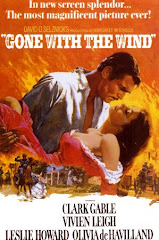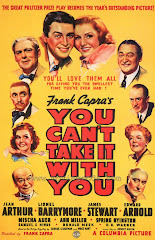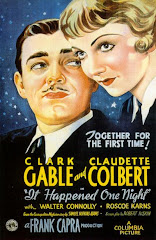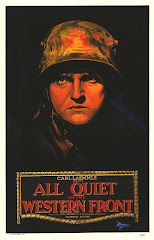Director: Robert Z. Leonard
Cast: William Powell, Luise Rainer, Frank Morgan
Genre: Drama
Other Nominees: Anthony Adverse, Dodsworth, Libeled Lady, Mr. Deeds Goes to Town, Romeo and Juliet, San Fransisco, The Story of Louis Pasteur, A Tale of Two Cities, Three Smart Girls
Shame on me! Any hesitation you may have noticed in me continuing my journey through cinematic history was due to the fact that I was simply not excited to see this film. Two reasons prevented me from starting, one was the subject matter of a Broadway musical maker’s life, and the second was the runtime of 3+ hours, neither of which sounded appealing to me. And yet while this film would undoubtedly not be for everyone I found it to be a surprisingly rewarding experience.
The Great Ziegfeld tells of the career of one Florenz Ziegfeld, a Broadway impresario, and of his rise and fall as he creates his masterpieces of stage. But it is really two films in one.
The first film is a reproduction of some numbers from Ziegfeld’s shows which can be found scattered throughout the movie. As the tagline for the movie suggests we can see “10 Big Shows In 1” as we make our way though The Great Ziegfeld. I think these are the scenes that some modern viewers will find themselves struggling through as most of the numbers are lengthy. But it must be said that I what I took away from them was the distinct impression of Ziegfeld as nothing short of a revolutionary, someone willing to push the envelope of what can be achieved on stage. The extravagance and style that was on display and the astounding set pieces were extremely impressive.
The second film lives between these fabulous acts and tells the story of the man Florenz Ziegfeld and in particular of his relationships with women, and for me it is the far more interesting of the two. Florenz “glorified the American girl” in his shows and the women he was involved with found themselves in constant competition with the many beautiful women he was surrounded by. The film is really an exploration of how a man obsessed with the beauty of women deals with the women he loves and lives with. This conflict is seen in earnest when his marriage with his first wife, Anna Held deteriorates under the pressure.
Asides from Florenz being a lady’s man if there was another aspect of the man that I can take away from this movie it is his devotion to the entertainment of the public at any cost. Mr. Ziegfeld did not die a rich man and although he lived a rich lifestyle on borrowed money he lost the modern equivalent of millions in the production of his shows. Ziegfeld himself put it best on his deathbed in this movie when he whispers that he only wanted to “add more stairs and get higher”.
I will leave you with a recurring thought I had throughout the film. I could not stop thinking about the fact that this film was produced less than 10 years after Ziegfeld’s death. Ziegfeld died in 1932 and 4 years later his life is on screen and winning the best picture award. In modern day we may not all know his name but his influence on the times can be seen most clearly in this fact alone. I imagine that he would have preferred a stage version of his life but I do think that to be recognized in an award winning film so soon after one passes is an amazing compliment.
Next Up: The Life of Emile Zola
Subscribe to:
Post Comments (Atom)



















































No comments:
Post a Comment